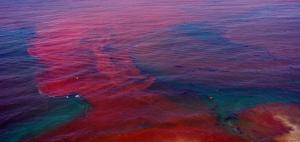Spring 2012 Faculty Lecture Series presents lecture on harmful algal blooms
University of Hawaiʻi at MānoaContact:
Posted: Apr 13, 2012
The final lecture in the Spring 2012 Faculty Lecture Series, Bioaccumulation of microalgal neurotoxins in aquatic food web by Professor Robert Bidigare from the Hawaiʻi Institute of Marine Biology in the School of Ocean and Earth Science and Technology, will be held on Thursday, April 26, at 3:30 p.m. in Hamilton Library Room 301. Admission is free and refreshments will be provided. The doors open at 3:15 p.m.
Bidigare's lecture focuses on the harmful algal blooms (HABs) associated with several acute and chronic diseases in humans worldwide. Characterized by gastrointestinal, neurological and/or cardiovascular disorders, these diseases can persist or recur for many months. In the last decade, beta-N-methylamino-L-alanine (BMAA) has been identified as an “emerging” neurotoxin in certain species of cyanobacteria (blue-green algae). BMAA has been reported to be present in a wide range of cyanobacterial taxa isolated from terrestrial, marine, freshwater and brackish-water habitats. Future changes in climate may increase their abundance and distribution because cyanobacteria grow better at higher temperatures, and often have a competitive advantage over other phytoplankton species at temperatures exceeding 25°C.
Furthermore, it has been shown that BMAA concentrations increase with increasing trophic level in Guam and the Baltic Sea. BMAA has been implicated in the etiologies of several neurological diseases including amyotrophic lateral sclerosis (ALS) – Parkinsonism dementia complex (ALS-PDC) in Guam, and ALS and Alzheimer’s disease (AD) in the United States. Despite the widespread occurrence of cyanobacteria at the global scale, there are large uncertainties in the mechanisms responsible for BMAA bioaccumulation in brackish water and marine food webs and the health risks associated with the consumption of BMAA-containing seafood.
The Faculty Lecture Series is sponsored by the Vice Chancellor for Research and Graduate Education Office of Research Relations and the UH Mānoa Library.

